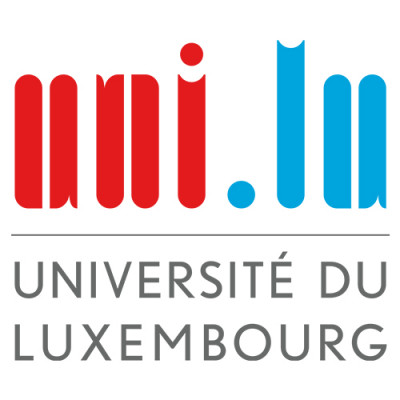Postdoc in Information Systems Engineering
Published on 27/12/2024

Université du Luxembourg
- Luxembourg, Luxembourg (Canton)
- Research & Development
About the SnT...
SnT is a leading international research and innovation centre in secure, reliable and trustworthy ICT systems and services. We play an instrumental role in Luxembourg by fueling innovation through research partnerships with industry, boosting R&D investments leading to economic growth, and attracting highly qualified talent.
The Centre is rapidly expanding its research activities and seeks highly motivated doctoral candidates who wish to pursue research in close cooperation with our partners. For further information, you may check: https://www.uni.lu/snt-en/ and https://www.uni.lu/snt-en/research-groups/finatrax/.
Successful candidates will join the young, vibrant, and interdisciplinary FINATRAX Research Group, which builds bridges between business research and information systems engineering. The group's work is organised around four emerging technologies (Digital Identities, Artificial Intelligence, Blockchain (DLT), and the Internet-of-Things) and three focus industries (Financial Services, Public Sector, and Energy). The group consists of doctoral and post-doctoral researchers from diverse backgrounds, including business, technology, law, and psychology. They are united in pursuit of sustainable technologies that have a positive impact on society. For further details, please visit our website: https://www.uni.lu/snt-en/research-groups/finatrax/
We're looking for people driven by excellence, excited about innovation, and looking to make a difference. If this sounds like you, you've come to the right place!
Your Role...
- Conduct cutting-edge research in areas of interest to the Research Group, including but not limited to:
- Conducting design science research by developing processes, models, methods, and systems and evaluating their effectiveness and utility
- Investigating the application and implications of emerging technologies like blockchain, digital wallets, and distributed ledger technologies (DLT), in private and public services.
- Integrating AI and ML techniques into information systems to enhance decision-making processes
- Investigating and designing AI explainability within information systems, considering the perspectives of individuals, organizations, and society to ensure comprehensive, responsible, and trustworthy technology development.
- Researching and developing multi-robotic process automation solutions within information systems, focusing on coordination, communication, task allocation among robots, etc.
- Evaluating information systems constructed using emerging digital technologies from a quantitative (performance, costs, …) and qualitative (maturity, task fitness, efficiency, etc.) perspective
- Disseminate results through scientific publications, aiming for the best-ranked outlets
- Communicate and work with stakeholders in government (ministries, regulators, government-run start-up incubators) and companies
- Prepare research proposals to attract industry partnerships as well as national and European grant projects
- Manage research projects and prepare project deliverables
- Mentor and supervise PhD students, providing guidance and support in their research endeavors
We offer two different career paths for research associates, depending on their interest in an academic or industry career. In our academic track, research associates focus on publications, research grants, teaching experience, and community involvement, while maintaining a close relationship with industry and government to secure access to rich research data. In our industry track, research associates prepare for a career in industry, in a start-up, or public body while utilizing their previous theoretical knowledge. They will build relationships with our private and public partners, while having the freedom to pursue their own ideas in an innovative and dynamic environment.
Your Profile...
- PhD degree in Information Systems Engineering, Computer Science, Robotics, Software Engineering, Applied Mathematics, Management Information Systems, or a related field
- Proficiency in research methods commonly used in information systems research, such as design science research or quantitative methods
- Strong interest in publishing in high-ranked journals such as the Association for Information Systems Senior Scholars' List of Premier Journals and in related outlets like Business & Information Systems Engineering, Electronic Markets, Government Information Quarterly, Technology in Society, or in Information Systems conferences like ICIS, ECIS, HICSS, and the Annual Meeting of the Academy of Management
- A collaborative team player with a desire to make a personal impact within our interdisciplinary research group
- The commitment to participate in the design, implementation, and theoretical elaboration of high-quality solutions that solve significant problems
- Autonomy, self-initiative, creativity, curiosity, flexibility and enthusiasm to work
- Excellent written and verbal communication skills in English are required
Here's what awaits you at SnT...
- Exciting infrastructures and unique labs. At SnT's two campuses, our researchers can take a walk on the moon at the LunaLab, build a nanosatellite, or help make autonomous vehicles even better
- The right place for IMPACT. SnT researchers engage in demand-driven projects. Through our Partnership Programme, we work on projects with more than 55 industry partners
- Be part of a multicultural family. At SnT we have more than 60 nationalities. Throughout the year, we organise team-building events, networking activities and more
How to apply...
Applications, written in English should be submitted through the University's job portal and should include:
- A cover letter including:
- A research statement and a list of topics of particular interest to the candidate (250 words)
- A statement on the candidate's personal motivation for applying (250 words)
- A strategy for the acquisition of research grants and industry partnerships (250 words)
- Full CV, including the contact address, work experience, and a list of publications
- Up to 3 publications in full-text, authored by the candidate
- Transcript of all modules and results from university-level courses
- (If available) reference letters by prior employers
Deadline for applications: Early submission is encouraged; applications are processed on a rolling basis upon arrival. Only applications submitted through the University's job portal will be processed. Applications by email will not be considered. This position is open as long as it is accessible in the University's job portal.
The University of Luxembourg embraces inclusion and diversity as key values. We are fully committed to removing any discriminatory barrier related to gender, and not only, in recruitment and career progression of our staff.